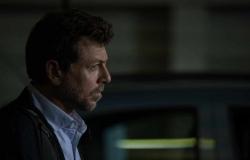Paul Schrader returns to collaborate with Richard Gere for the first time since American Gigolo. The film will arrive in cinemas with Be Water. The review of Oh Canada by Federico Gironi.
It was 1980 when, with American Gigolo, Paul Schrader And Richard Gere they nailed to the screen, perpetuating it, the imagery of a newly born decade. 44 years have passed, and the two return to collaborate for the first time in Oh Canadaadaptation of the novel of the same name by Russell Banks, in Italy titled, like the film, The betrayals.
Lucid and ruthless as Schrader can bealso in his now famous Facebook posts, The betrayals it is a film that, starting from the existential balance of a man on the verge of death, touches on many topics, including the relationship between reality (or truth) and the image (cinematic or otherwise).
In the film Gere plays Leonard Fife, a acclaimed documentary filmmaker known for his political commitment. Devoured by cancer, he agrees to be interviewed, in the presence of his wife Emma (Uma Thurman), by a couple of his former students who have become documentary filmmakers themselves. Leonard should talk about his work, but what he does instead is tell – to himself, to his wife, to others – the truth about his life. Starting with a deception: he had not fled from the United States to Canada to avoid leaving for Vietnam, but for decidedly less noble reasons.
What, however, seems to be the last confession of a man who wants to remove burdens from his conscience (and who, he says, is only able to tell the truth in front of an objective), a retracing in flashback of a past and buried life, in which Leonard is sometimes played by Jacob Elordi, others by Gere himself, becomes something different. Why Schrader’s film mixes the cardsLeonard’s stories seem less coherent and lucid, and insinuate in the viewer the doubt that perhaps Emma was right, that Leonard is talking too much because of his illness and his medications.
Here then, the great ambivalence of a cinematographic image which, as is explicitly said, if on the one hand is a shortcut to the truth and to eternity, on the other it can also be a dream, fantasy, lie. And eternization not of life, but of death.
The shift is from clarity to confusion, which then reflects the real one of Gere’s character, increasingly tired in speaking and telling himself, is put on the screen by Schrader with a slow and mysterious progression, during which one gets lost in the many crossroads of a life spent hiding the sentimental misdeeds of the past under a blanket of silence, political commitment, professional glory. Integrious in the public and in his work, Leonard has not forgiven himself for the escapes and infidelities of the past, which he wants to admit to the great love of his life before it is too late.
The great and placid cinematic vitality of The Betrayals creates an interesting contrast with the story of a sick, troubled man, about to cross the border between life and death. Gere works, and Schrader manages the growing ambiguity of the film well, just with a few too many dispersions.
But he knows what to say with the camera, how and when. Without ever wanting to flaunt anything, prove anything. Only with the desire to tell a story, a character, their contradictions. With the belief that cinema can describe disorder, lights and shadows. Maybe even give them a sense, an order, a higher meaning. An eternal dimension.





